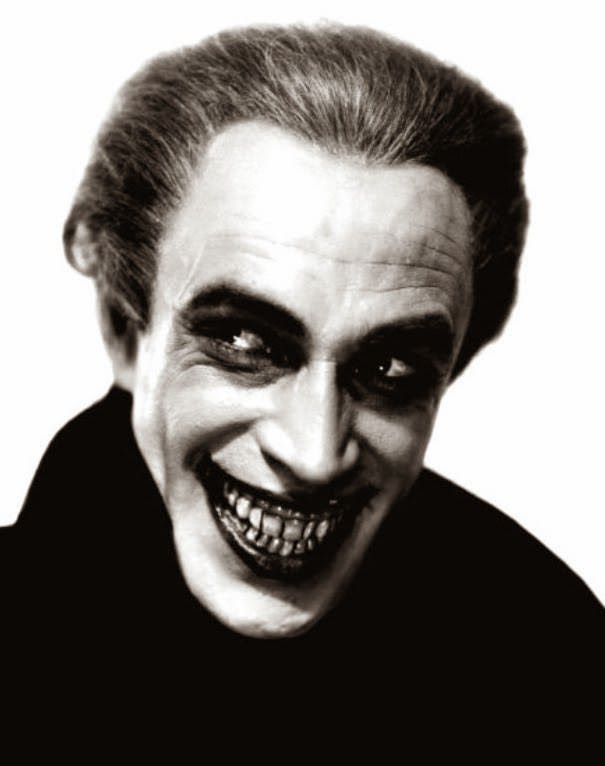 |
| Conrad Veidt |
The fact that his greatest characters were conveyed in the days of utter silence only made them more eerie and effective. The horrors he was able to communicate with his eyes and body alone, as a student of the exaggerated but profoundly effective German expressionistic movement, were enhanced by the mystery of his wordlessness. He was a creature, a ghoul, an unhuman thing lurking in the corners, penetrating the walls of your safe home, and hiding under your bed. He was an infection, slowly entering the system and tampering with one's very sense of reality...
Of course, Conrad wasn't just about terror. His career in cinema was incredibly varied and his performances as one of the most revered character actors of his era run the gamut from the Devil to the Saint. His sensitive and curious soul gave him the courage to approach many odd ball characters and taboo subjects, including the homosexual-themed film Different from Others. He wasn't afraid of the repercussions. He wanted to tell stories. All of them. After performing in the first German sound film, he was forced to flee his own country when Nazism took over the film industry and his outspoken disdain for the movement put a target on his head. The rest of the world was glad to have him, especially Britain, to whom he continually donated a great deal of his wealth to the war effort. He later participated in many a sound film, including A Woman's Face and the iconic Casablanca.
However, just as he was beginning to reinvent himself in America, he passed away at the young age of fifty when he suffered a heart attack. Once describing himself as "Lucifer in a Tuxedo," his saga lives on through his remarkable work, which he always attacked with a passionate zeal few other actors can equal. A fascinating human being, a game changer, and a gentleman, he remains a riddle as multifaceted as the many different beings he brought to life on the big screen.
No comments:
Post a Comment